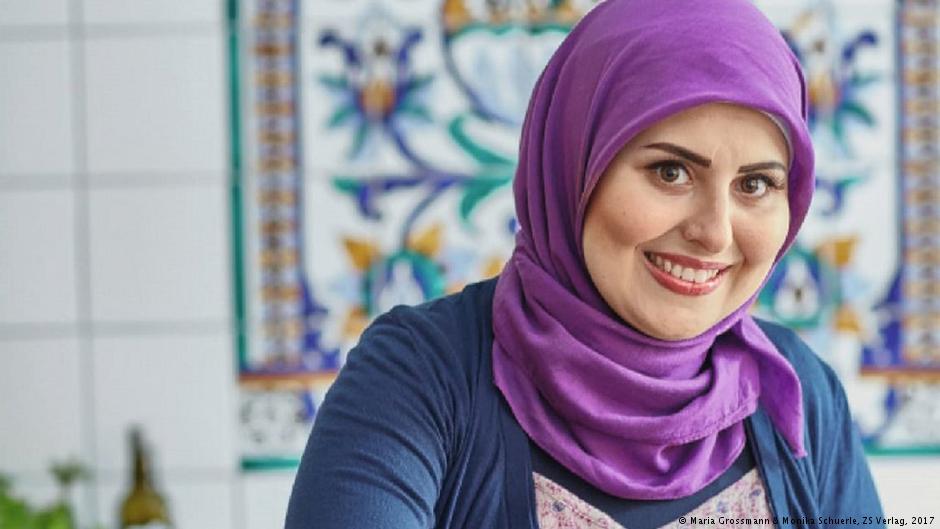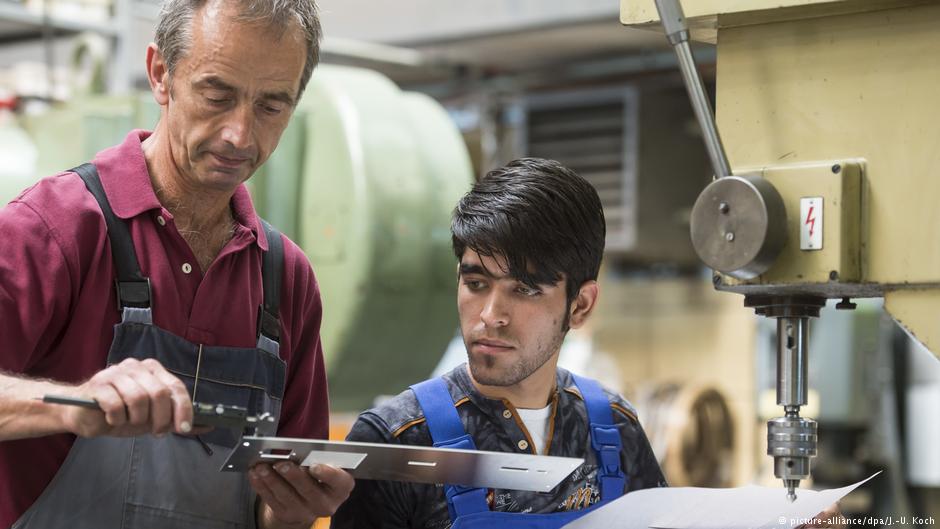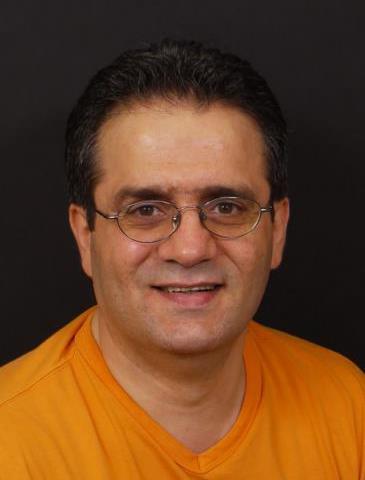Success for some means failure for others

Accounts of individual refugees' particularly exceptional achievements in integration are receiving a great deal of social and media attention in certain host countries. Such success stories are being spread not only by mainstream media outlets in the respective countries, but also by those operated by refugees themselves or media dedicated to the themes of flight and migration.
Some of the articles tell of extraordinary professional or academic achievements. They highlight excellent exam results or certificates with which refugees surpassed their colleagues or fellow students. Others recognise cases where refugees learned German particularly quickly, or completed a course of training with better results than (nearly) all the other participants or trainees. And then there are the accounts of refugees being financially supported by institutions abroad, or honoured in other ways for their exceptional talents or achievements.
Although all these stories are presumably told with the intention of fostering a positive image of refugees and pointing out successful cases of integration, they are accompanied by problematic implications.
What makes a "successful refugee"?
In the following, I would like to discuss the two most important aspects involved: first, what kind of image is being spread here of the "successful refugee"? And second, these stories tend to gloss over the deeper reasons that underlie the success or failure of social and professional integration.

The first problematic implication is reflected in the frequent presentation of outstanding individual accomplishments as being based solely on the exceptional talent and capabilities of the protagonists. Such portrayals can trigger frustration for "normal" refugees: the feeling of not being good enough and having no realistic chance of successful integration into the new society.
"Normal" or "average" people are, however, in the majority in every society and community. There is no reason why this truism should not also apply to refugees. Many of these success stories thus lead to greater frustration among refugees rather than encouraging and motivating them to follow the example of these ostensible role models.
Therefore, we should carefully consider the following question: are special abilities and exceptional talents really necessary for success in the host society?
Objective circumstances are vitally important
What is often concealed within the context of these success stories is the importance of "objective" circumstances and factors that have little to do with the individual's determination, skill and talent, and more to do with the host society and new environment the refugees find themselves in.
A scholarship or other form of individual assistance is always an exceptional case. Apart from this, refugees' starting conditions differ greatly regarding for example their housing situation, the opportunities they have to learn German, or their residence status. It makes a serious difference whether a person receives only one year of subsidiary protection without an entitlement to family reunification, or whether they are granted a three-year right of residence and can live under one roof with other members of their family.
Those whose circumstances allow them to find their own apartment are in a completely different situation than refugees who are forced to live in a "camp" or similar accommodation. In the latter living situation it is much harder to find the necessary stability to start a new life and to integrate professionally and socially.
The same is true for the duration of the asylum procedure and the possibility of attending a German course. It makes a world of difference whether the procedure takes two months and one can take German lessons without a long waiting time, or whether it takes two years for a decision about one's status to be made and there is no opportunity to learn German.
One-sided distribution of responsibility
The reason why the important role played by objective circumstances remains unmentioned in these accounts of integration is the implicit or explicit overlap of two different sets of interests.
On the one hand, it is convenient for those speaking in the name of or representing the host society to place the responsibility for the success or failure of integration entirely or at least mostly on the refugees themselves. This one-sided distribution of responsibility assumes that the objective conditions necessary for successful Integration are always given. Success or failure is thus a personal matter and accordingly bound to the individual's own determination and self-image as well as his or her skills and talents.

For the "model refugees", in turn, it is very tempting to highlight individual success factors like a mantra, and to make the objective conditions that are not related to personal determination or abilities appear as immaterial as possible.
Only in this way can the success story be presented as a unique personal achievement, distinguishing its hero from all other refugees. This narrative of "model refugees" also brings with it the second problematic implication that is transmitted through the widespread accounts of successful individual integration.
Destructive narrative
The problem lies in the way in which some of the refugees tell their story: their success implies the failure of others. It is not only that they trace their achievements to their personal efforts only and fail to adequately recognise the importance of other factors; they also manage, in the same breath, to give all other refugees the sole responsibility for their failure or lack of achievements.
The success of one refugee thus means that all those who cannot boast similar progress have somehow failed. All too rarely do the heroes of these success stories make it clear that they would not have come so far without ideal conditions to start with.
All too rarely do they show any understanding for the fact that circumstances are not as ideal for others. At the same time, they are not sparing with criticism and blame. Sometimes this even goes so far as humiliation and ridicule.
Even if it may sound paradoxical, their harsh judgment of their less successful comrades is often based on one of two very different feelings. Some of the "model refugees" feel sorry for those who are less successful; their failure pains them.
The criticism is intended to shake up the other refugees and drive them to invest even more energy into turning things around. Others by contrast have fundamentally negative feelings towards the "failed" refugees and look down on them.Integration is a right, not a duty
It is important, therefore, to think about how "successful" refugees are portrayed and what sort of ideas these accounts convey. Because the way the stories tend to be presented today probably ends up achieving the opposite of what is intended.
The impression should not be given that living in a different country and integrating into a new society is some sort of test that those who end up integrating have passed, while those who don't should be the targets of scorn and ridicule.
Integration is a right rather than a duty that must be fulfilled. Therefore, it is necessary in questions of integration to dismiss any kind of coercion, threats or intimidation. Instead, we must promote dialogue; we must talk about rights and convince people not only on a rational but also on an emotional level.

And another aspect of the debate must also be considered: the prospect of either representing a shining example of integration or being branded as a failure is not the worst scenario that refugees face. Instead, it seems that they ultimately cannot escape humiliation regardless of their personal efforts.
At least this was the impression that not only refugees got from the billboard campaign launched by the German Ministry of the Interior encouraging them to voluntarily return to their native countries.
In purely formal terms, the campaign was aimed at refugees – all of them, whether "integrated" or not. Its slogan "Your Country. Your Future. Now!" suggests that Germany could never become "their country". Implicitly, yet unmistakeably, "Your Country" is the country they came from.
The campaign ignores the fact that whatever place these people have left behind is not really their home or their country anymore. Otherwise they would not have fled from it. In fact, the campaign was not really aimed at refugees at all.
Its goal was to convince the German populace that the government was doing everything in its power to send as many refugees as possible back to "their countries of origin" or "home", to get rid of them and to reduce their number as quickly as possible. Because sooner or later, the idea is, they are to build their futures there, not here in Germany.
Shift in the public discourse
The message of such a campaign also reaches refugees: "Whether you successfully integrate or not, Germany is not your future!" In this sense, it makes no difference whether they are "integrated" or "not integrated". At the same time, a shift is taking place in the public discourse. Once, it was said that one should help those in need. But now the best thing to do is supposedly to help them return to their home countries as quickly as possible, because unfortunately they ended up here!
Little by little, this notion undermines even the promise of gaining acceptance through integration. Humiliation is inevitable at the end of the process – integrated or not.
This is a blatant contradiction to the German "welcoming culture", the best thing this country has contributed to the world in many years. With its advent, there was a hope that Germany could be an inspiring role model for the rest of the world.
Recent developments suggest, however, that this hope could be dashed. It is very possible that this welcoming culture will be further side-lined and perceived as foreign even in its place of origin.
Housamedden Darwish
© Qantara.de 2019
Translated from the German by Jennifer Taylor
